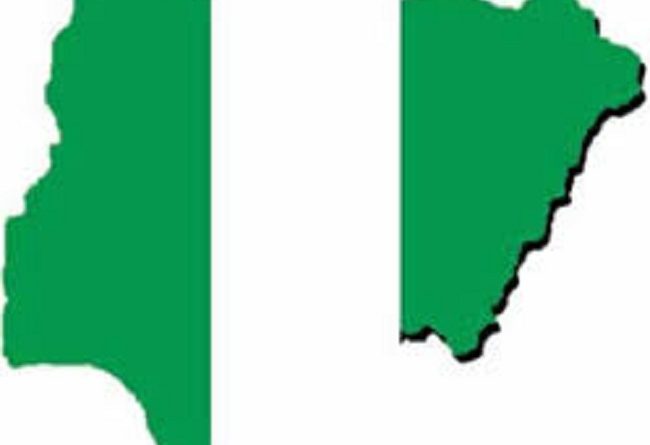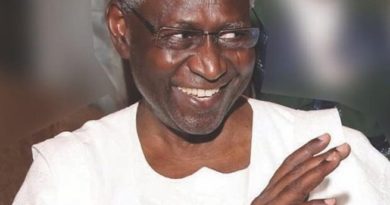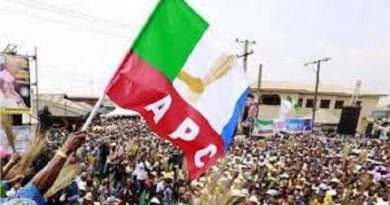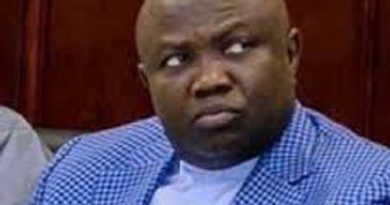Nigeria Draws Red Line Against South Africa
Lagos / Abuja – The Federal Government, on Wednesday, took drastic measures to stem the tide of xenophobic attacks on Nigerians in South Africa with a resolution to recall its High Commissioner to that country, Ambassador Kabiru Bala.
Vice President Yemi Osinbajo, who was to represent Nigeria at the forum and was supposed to have travelled today, Wednesday, did not make the trip as he reported for duties at the Presidential Villa.
President Muhammadu Buhari, Osinbajo, and Minister of Foreign Affairs, Geoffrey Onyeama, literarily drew the red line against South Africa after they emerged from a meeting at the State House.
They equally resolved to demand full compensation of victims from the South African authorities which would form part of discussions which the special envoy dispatched by President Buhari would have with South African President Cyril Ramaphosa when they meet in Pretoria on Thursday.
According to the minister, the red line had been drawn against the South Africa government.
“Enough is enough, we can’t allow any of our citizens to be killed in South Africa again,” Onyeama said.
He explained that recalling the Nigerian ambassador to South Africa would be effected once the special envoy which is expected to retrieve vital information on the attacks returns from the country.
He explained: “We have made it clear that what has happened in South Africa is totally unacceptable.
“We will not accept it, and as I said earlier, enough is enough, and we are not going to come back to this, we are going to address it once and for all.
“It is the position of government that we are going to draw a red line here. Whatever measures that need to be taken to ensure the safety of Nigerians in South Africa, we will take.
“We have been in touch with the South African government, at the very highest level with the President of South Africa as to what we want to achieve.
“The special envoy has very clear directives about the commitment and the guarantees that we expect from the South African government.
“Of course, a lot of things have been circulating in the social media which have not helped matters. Some of them have really distorted the situation and, because of that, have impacted our response.
“And I think that is very important because, on social media, there is a lot of stories going around, of Nigerians being killed, jumping off buildings, and being burnt. This is not the case.
“What we know is that premises, shops of Nigerians have been looted and property destroyed.”
Confirming the withdrawal of Nigeria’s participation in the World Economic Forum in South Africa, he said the vice president was scheduled to go to South Africa today (Wednesday) to attend the World Economic Forum.
“Clearly, with this climate, he and Mr. President have agreed that he should not go to the World Economic Forum in Cape Town and we are looking at other measures to take.”
He said that Mr. President was particularly disturbed at the act of vandalism that had taken place here in Nigeria, in retaliation of what is happening in South Africa.
Onyeama stressed that the government believed that they had to take the moral high ground on this matter.
“We are victims here and have made that position clear to the international community and to the South African government.
“We here in Nigeria must not fall into the temptation of also resorting to the acts that we are condemning in others.
“Mr. President has pleaded and he is likely to make a statement on this, addressing the Nigerian people to please desist from acts of vandalism and aggression, destroying properties,” the minister said.
The Federal Government has appealed to Nigerians back home to remain calm, warning against attacking South African businesses in Nigeria.
According to the minister, “These businesses – Shoprite, MTN, and others, yes they are South African, but these are subsidiaries in Nigeria, owned by Nigerians.
“So, as attacks are made against Shoprite and other such institutions, it is actually the property owned by Nigerians within Nigeria, and the people working there are Nigerians.
“So, the people that will suffer from those acts of vandalism and aggression are not South Africans or anyone else but Nigerians. But morally, it is wrong not even because of who will suffer and not suffer.
“Mr. President is appealing to Nigerians, the government is acting, we cannot state everything, in the public domain with regards to what we are doing.
“Obviously, but we want to assure all Nigerians that this government is determined that the red line has been drawn and we will not give in on this occasion, and that the South African government has assumed its responsibilities to do the right thing: protect Nigerians and other Africans, I might say, in South Africa and we have to hold them to account.
“Full compensation has to be paid because as we have discovered, from previous experience, a lot of these Nigerians lose their property, and it is a long drawn out process, and every often we are not compensated for it.
“But on this occasion, the Nigerian government is going to fight for full compensation and hold the government of South Africa to account.”
Agbakoba, Ogunlana Say Action Belated
However, the action of the Federal Government in recalling Nigeria’s ambassador to South Africa and in withdrawing its participation from the World Economic Forum in Cape Town, South Africa has been commended but described as belated.
Speaking to Daily Independent, Dr. Olisa Agbakoba (SAN), a former President, Nigerian Bar Association (NBA), said, “As far as I’m concerned, those actions by the Federal Government are belated.”
He hinted that the xenophobic attack has become perennial because since black-majority rule was inaugurated in South Africa the Nigerian government has failed to define its relations with that country.
“There’s a context to South Africa-Nigeria relations. Nigeria was a frontline state during the anti-Apartheid struggle,” he said while referring to the country’s clear approach to the Apartheid government during white-minority rule in that country.
“During the Apartheid era there was no other African country that played a greater role in fighting for freedom for black South Africans as Nigeria.
“That was why Obasanjo went ahead and nationalised British companies in Nigeria.
“All said and done, white-minority rule ended in South Africa and this saw many African nationals, including Nigerians, immigrating to South Africa.
“Nigerians managed to stamp their economic presence in that country and this generated the petty envy of black South Africans against them.
“Given this background to the relationship between Nigeria and South Africa, I think Nigeria must now define anew its relationship with that country going forward.
“Otherwise these xenophobic killings will not end. We must apply the policy with the fullest possible force.”
Speaking in a similar vein, Adesina Ogunlana, former NBA chairman, Ikeja branch, said, “It is a good reaction; it is, however, belated. It even reads to me like an after-thought.
“We are talking about a country with our capacity reacting five days after the killings of Nigerians had taken place in South Africa. I expected that this action will place immediately.
“The government ought to have made it a national emergency. Immediately this happened the government should have started making all the necessary threats to the AU, the UN and others.
“When Saudi Arabian authorities threatened to execute a Fulani in that country for fouling the law, you could see the dispatch with which the government responded and the girl’s life was spared.
“That is what this government ought to have done like five days ago.




